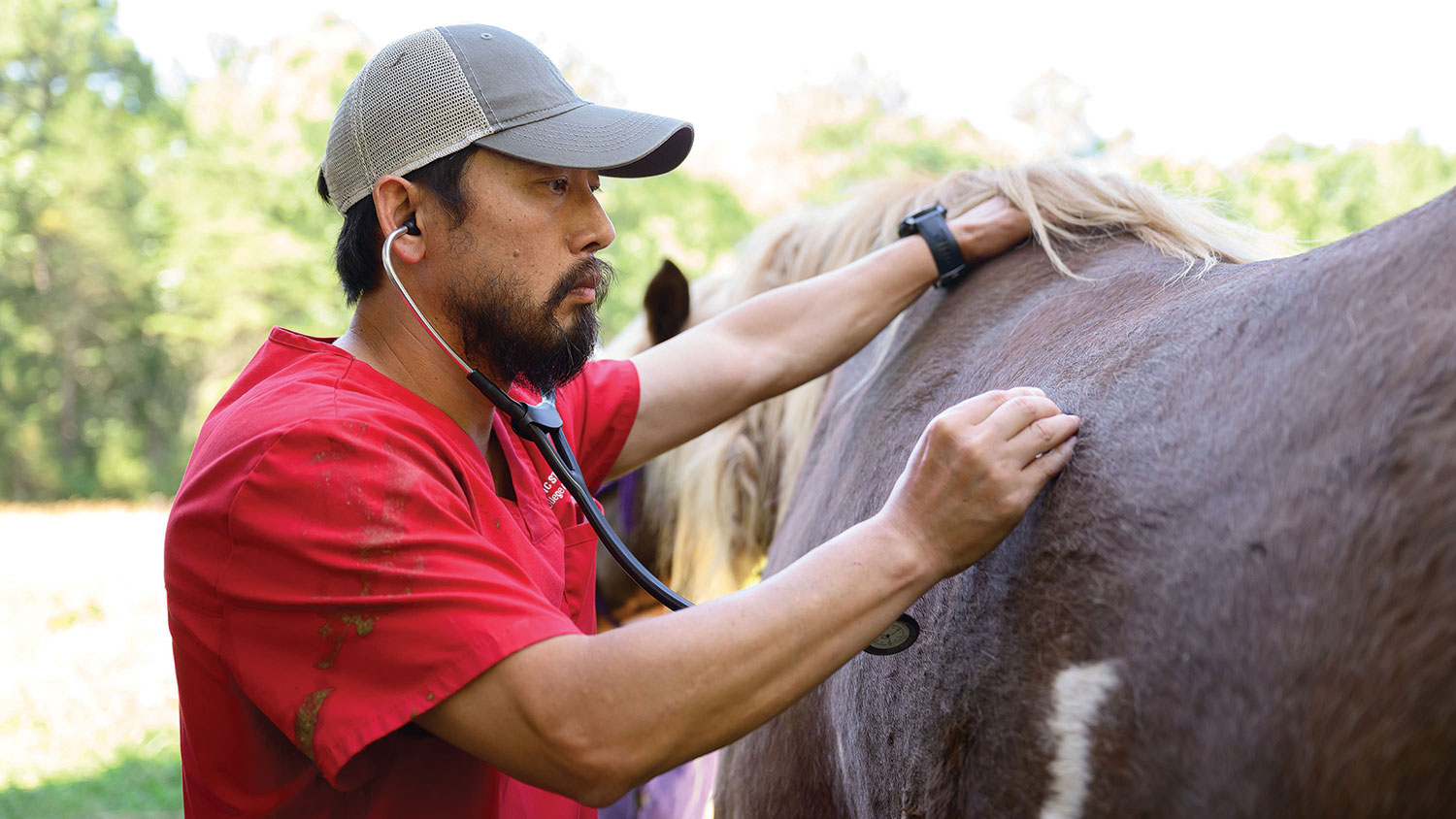Country Doctors
A College of Veterinary Medicine program tackles the rural veterinarian shortage.

A new program at the College of Veterinary Medicine is addressing North Carolina’s shortage of rural veterinarians. In its inaugural year, the Randall B. Terry Jr. Rural Veterinary Scholars Program sent six veterinary students to work with large and food animal veterinarians across the state.
The 10-week program provides students with a $6,500 stipend, reimbursement for housing and travel, and training and mentorship. “You work long days, you’re out in the heat all day,” says Jillian Petersen, a Rural Scholar who enjoys the variety that comes with large animal care. “But when compared to being inside on a clinical day… I will take the hot, sweaty North Carolina humidity over that.”
The number of large animal veterinarians is plummeting, making it difficult for farmers to get medical help for their stock. Forty years ago, 40% of vet school graduates nationally entered food animal-related practices, compared to about 4% in the last 20 years, a Farm Journal Foundation report says. At NC State, 10 of the Class of 2024’s 98 veterinary medicine students focused on food animals while 53 focused on small animals. (In the College of Agriculture and Life Sciences, another program, Food Animal Scholars, encourages undergraduates to focus on large animals.)
Money is one reason that more vets focus on dogs and cats. “A lot of our [small animal focused] students could close their eyes and point anywhere on the U.S. map and find a place that will probably cover their travel, their housing and offer them a competitive wage,” says Christian Jackson ’18, who coordinates the program.
Many rural vets can’t offer that, Jackson said. To get experience working in rural areas, students can incur expenses while racking up student loan debt.
The stress of the job, including long hours often working from mobile clinics with large animals, also contributes to the shortage. Seungshik Lee, who retired from the U.S. Army after 20 years, learned about the need for rural veterinarians while serving with one from Idaho. Lee is pursuing the field to bridge a gap that younger people have trouble filling because of time and financial requirements.
Mentored by veterinarians in Greenville, N.C., and Siler City, N.C., as a Rural Scholar, Lee honed practical large animal skills and soft skills required to best serve rural clients. “Those little things, I learned a lot, and you definitely don’t learn that in school,” Lee says. “If you have a good mentor to shadow, then you’re lucky.”
Tell Us What You Think
Do you have a personal connection to this story? Did it spark a memory? Want to share your thoughts? Send us a letter, and we may include it in an upcoming issue of NC State magazine.


